11/06/2023
Austria
participants
The purpose of the local dialogue workshop was to gather qualitative information from young participants regarding the barriers they face in accessing international opportunities and exercising their rights as mobile individuals.
Altogether, ESN Austria had a number of 37 participants joining two focus groups of EGiA, including 2 volunteers per session. Approximately 90 % of the participants were members of ESN Austria. A few participants came from abroad and one person had no contact with ESN before. We hosted two focus groups – one at the University of Vienna with 6 participants and one during the NA in Salzburg with 31 participants. The sessions involved open discussions focused on key topics related to international mobility, opportunities within the European Union (EU), challenges faced by young people, and the impact of mobility on civic engagement.
Results
Main Motivations for Going Abroad:
The participants expressed various motivations for pursuing international opportunities, including self-development, organizational skills, experiencing different educational systems, practice language skills and a desire to explore new cultures.
Awareness of EU Opportunities:
All participants were familiar with the Erasmus+ program, while some mentioned the European Solidarity Corps and Erasmus Mundus. A few non-EU funded exchange programs, scholarships from universities, and governments were also mentioned.
Challenges and Barriers:
Financial constraints, complex bureaucracy, limited accommodation options, and a lack of awareness and guidance were identified as major obstacles to participating in international mobility programs.
Rights of EU Citizens:
Participants highlighted the freedom of movement and work, freedom of speech, and the right to non-discrimination as essential rights for EU citizens.
Impact of Mobility and Civic Engagement:
The participants acknowledged the positive impacts of international mobility, such as gaining cultural and language exchange experiences, broadening perspectives, and becoming more independent and active citizens.
Overall, the participants of the focus groups highlighted the importance and impact of international mobility programs in fostering personal growth, intercultural understanding, and active citizenship. The recommendations put forth by the participants aim to address existing barriers and improve the accessibility and effectiveness of such programs.
- Detailed responses to the key guiding questions
1.1. What were your main motivations to go abroad for learning purposes (study, traineeship, volunteering)?
- Traveling (e.g. family been travelling a lot, innate traveling)
- Always wanted to go abroad, was pretty clear but just a question of where
- Self-development
- Organisation skills
- get to know different education systems
- Improve language skills
- Exploring new cultures
- Making new experiences
- Broaden perspective
How and when?
- In high school (UN model, student exchanges, other students)
1.2. Which factors should be considered to make the decision to go abroad?
- Phd abroad: need to be a job not a study, topic fitting
- Limited choices for the preferred destination
- Different & new experiences
- Climate
- Safety
- Good Infrastructure
- Liberal country (e.g. queer friendly, respectation of women rights)
- Financially affordable → costs
- Inclusion (special needs)
2.1. Which mobility opportunities for young people funded by the European Union do you know about?
- Erasmus
- Erasmus+
- European Solidarity Corps
- Erasmus Mundus
- Fullbright
2.2. Do you also know other funded international opportunities beyond those funded by the EU?
- Scholarships from different universities
- Government sponsored scholarships
- Promos
- National Agency sponsored
- To go to Australia there is no official program, but a specific contract with Uni Wien
- Global mobility
2.3. How did you find out about the different opportunities?
- Partners
- University (e.g. on campus - international days, flyers)
- ESN
- Classmates
- Teachers
3. Which rights and freedoms do you have as a European citizen? Do you know how they would work?
- Right to move to another EU country anytime
- Right to work
- Emergency help (access to the European health system)
- Right to vote in the EU elections
- Freedom of speech
- Freedom of religion
- Right to not be discriminated
- Women's rights and freedom of love
Were you aware of those rights when you were on mobility?
- Mobility makes more aware of the right to move freely within the EU
4.1 Less than 15% young people in Europe have mobility experiences. Why do you think so few people participate in international opportunities?
- Financial reasons
- Concerns of family or friends
- Language and cultural barriers
- People are not aware about the opportunities
- No knowledge or help to apply
- Complicated process to apply alone
- Some people are not that open minded to leave their comfort zone
- Some don’t know what it means to go abroad, have different perspectives
- Some might have different goals
- Afraid to be neglected, not included by the local community
- Difficulties in credit transfer, coordination with the teacher, difficult to find matching courses
- Feeling of “Loss of study time”
- Few information about universities abroad
- You need to know everything beforehand, if you miss a specific mail, you might miss the chance to go on mobility
- Visa problems, visa application causes a lot of paperwork
4.2. Based on your experience and those around you, what do you think are the main challenges to participating in a mobility experience? ( + ranking
1. Financial reasons
2. Bureaucracy
Uni credits transfer
3. Finding accommodation
4. Missing guidance in the country of exchange
4.3. What support needs to be put in place to enable more young people to go abroad?
- Guidance - at least in the beginning (from the sending university etc. as well as abroad)
- Visa process should be simplified
- More transparent grants
- More diverse opportunities offered for the different degrees
- Easier crediting of ECTS
- Course naming - same courses have different names → should be standardised at least for Erasmus
- Help to find accommodations: many people have never been abroad. People don’t know how to find housing or check market and drop out.
- ESN sections
- Scholarships
6. What do you think are the biggest impacts of learning mobility? Do learning mobility opportunities like Erasmus benefit only those who take part? How do they benefit others?
- more open-minded
- impact on societal topics like inclusion etc
- People abroad bring back good parts/ideas of other countries: public transport, salary
6.1. What do you think are the biggest impacts of learning mobility?
- Improvement of language skills
- New friendships
- Networking
- ESN
- Freedom
- Independence
- Adult life trial period
- Stories to tell afterwards
- Personal growth
- Enhances the CV
- Motivation to go on further mobility
- More open-minded
- Impact on societal topics like inclusion etc
6.2. Do learning mobility opportunities like Erasmus benefit only those who take part? How do they benefit others?
- People get to know people who participate in exchanges
- Cultural exchange, language exchange
- People who went abroad bring back good parts/ideas of the other country: e.g. public transport, salary
- Erasmus in schools
- Contact with international people
7.1. What is the role of international opportunities like Erasmus in the European Union? Do you think they are important?
- Strengthen the idea of EU
- Openness to look for opportunities outside your home country
- Awareness about opportunities as EU citizen
- Young people being shown that institutions support you → feel a closer connection to the EU and more supported after Erasmus
- European identity
- More interested in EU politics and connected participation in democratic life
7.2. How did your perception of the European Union changed with your mobility?
- Good to find out about EU opportunities
- Grateful for non visa options
8.1. What are the different forms of democratic participation you know about related to European affairs?
- Representatives in the Commission
- European Parliament
- “I know that we can vote on different things”
- Delegates
- Vote on national level which also acts on international level
8.2. What would motivate you to vote in the European Parliament elections?
- Preventing something bad
- Support opportunities for young people
- Make use of my right to vote
- Trends and most relevant aspects discussed in the Focus Groups
Based on the discussions, several recommendations emerged:
- Improve Awareness and Guidance: Enhance information dissemination about various mobility programs and provide better guidance to potential participants at universities and within the host countries.
- Simplify Bureaucratic Processes: Streamline visa application procedures and reduce paperwork to facilitate access to international opportunities.
- Expand Opportunities and Diversity: Encourage the EU to support universities in offering more diverse options for international mobility, even if not all programs can accommodate larger numbers of students.
- Standardize Course Naming: Consider standardizing the names of courses, particularly within the Erasmus program, to facilitate credit transfer and recognition.
- Address Accommodation Challenges: Provide assistance and resources to help participants find suitable and affordable housing when going abroad.
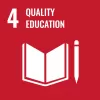
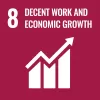
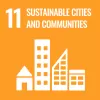
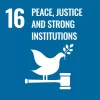
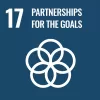
This activity is part of the project:
Erasmus Generation in Action (EGiA)